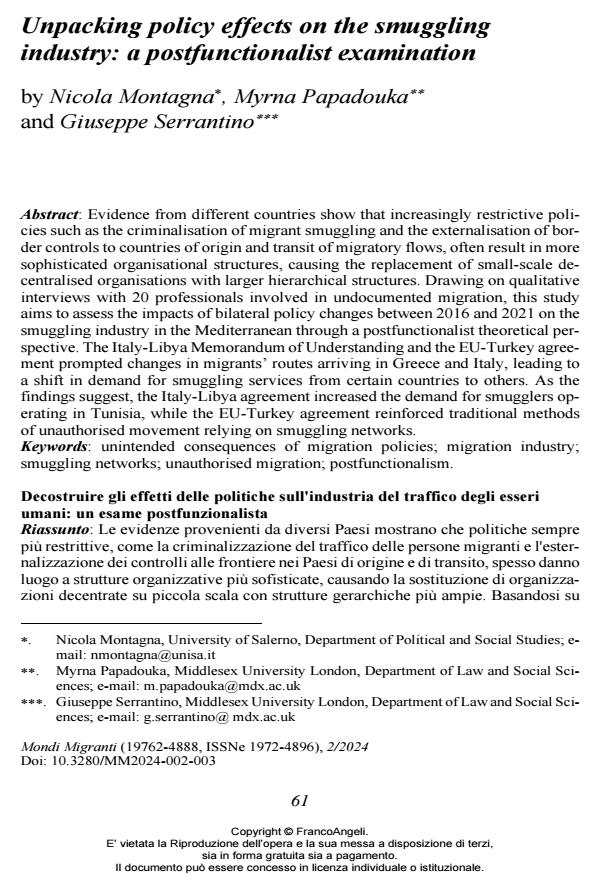Unpacking policy effects on the smuggling industry: a postfunctionalist examination
Journal title MONDI MIGRANTI
Author/s Nicola Montagna, Myrna Papadouka, ,Giuseppe Serrantino
Publishing Year 2024 Issue 2024/2
Language English Pages 24 P. 61-84 File size 208 KB
DOI 10.3280/MM2024-002003
DOI is like a bar code for intellectual property: to have more infomation
click here
Below, you can see the article first page
If you want to buy this article in PDF format, you can do it, following the instructions to buy download credits

FrancoAngeli is member of Publishers International Linking Association, Inc (PILA), a not-for-profit association which run the CrossRef service enabling links to and from online scholarly content.
Evidence from different countries show that increasingly restrictive policies such as the criminalisation of migrant smuggling and the externalisation of border controls to countries of origin and transit of migratory flows, often re-sult in more sophisticated organisational structures, causing the replacement of small-scale decentralised organisations with larger hierarchical structures. Drawing on qualitative interviews with 20 professionals involved in undocu-mented migration, this study aims to assess the impacts of bilateral policy changes between 2016 and 2021 on the smuggling industry in the Mediterra-nean through a postfunctionalist theoretical perspective. The Italy-Libya Memorandum of Understanding and the EU-Turkey agreement prompted changes in migrants’ routes arriving in Greece and Italy, leading to a shift in demand for smuggling services from certain countries to others. As the find-ings suggest, the Italy-Libya agreement increased the demand for smugglers operating in Tunisia, while the EU-Turkey agreement reinforced traditional methods of unauthorised movement relying on smuggling networks.
Keywords: unintended consequences of migration policies; migration industry; smuggling networks; unauthorised migration; postfunctionalism.
Nicola Montagna, Myrna Papadouka, ,Giuseppe Serrantino, Unpacking policy effects on the smuggling industry: a postfunctionalist examination in "MONDI MIGRANTI" 2/2024, pp 61-84, DOI: 10.3280/MM2024-002003